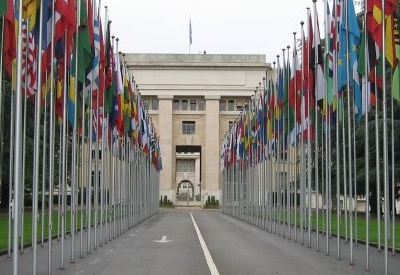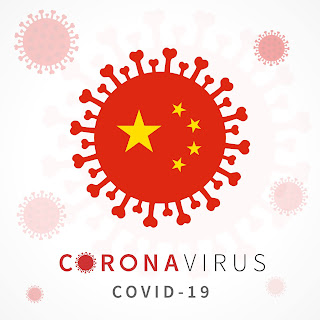Xi Jinping's Nine Dash Dragnet
As of the end of 2017, 96 out of 167 countries with populations of at least 500,000 (57%) were democracies of some kind, and only 21 (13%) were autocracies. Nearly four dozen other countries – 46, or 28% – exhibited elements of both democracy and autocracy. Broadly speaking, the share of democracies among the world’s governments has been on an upward trend since the mid-1970s, and now sits just shy of its post-World War II record (58% in 2016). 1
Jiang Zemin and Hu Jintao served two terms as President under fixed term limits. Xi Jinping was appointed President in 2013 and the Communist Party of China (CCP) has codified the constitution to empower Xi with unlimited term limits. In fact, the Party has enshrined "Xi Jinping Thought" to embolden the Party around a common mission statement to support Xi and the Party's ideals for the future beyond Xi's death. Hence, the leadership of the CCP has a firm rein on the authoritarian nature of Chinese politics since Chiang Kai - shek fled to Taiwan after ceding power to Mao in 1948 in the aftermath of the Chinese Civil War. Mao's authoritarian mannerisms were fomented as a founding member of the CPC in 1921 and placed the CPC at ideological odds with the ruling Kuomintang Party, although they worked to oust warlords that were controlling the north on the Mainland. If we take the issue of the warlords and China as a suzerain state of Japan and Great Britain, the audacious manner in which Xi is operating seems logical, yet, a step back from China democratising through term limits and the opening of the economy, particularly, since Tiananmen in 1989. What has transpired during Xi's first term was a promise to U.S. President Barrack Obama not to militiarise The Spratley Islands in the South China Sea. Instead, China has build up installations of these reefs, creating an ecological disaster in the making, while fuelling dissent among their neighbours for encroaching on their exclusive economic zones (EEZ) whether to force out foreign companies that may have an interest in helping these neighbours extract oil and gas deposits, and or, over fishing in areas that Chinese and Vietnamese fishermen have no jurisdiction over. "Dredging to construct China's new islands has damaged the environment and there are typically 100-150 Chinese fishing boats working every reef that China controls, compared to between 0.1 and 0.5 fishing boats per reef in the Great Barrier Reef, according to the research by Eric Wolanski and Severine Chokroun."2
Xi's China is in a hostile state, that some say relates to the festering of the Opium Wars, the loss of Hong Kong, and currently the nascent coronavirus (COVID 19) that has tarnished China's reputation as a global leader due to a lag on acting on the virus in the early stages. Now, the virus is impacting many economies negatively, while Italy has suffered extensively (197 fatalities - March 7) in terms of loss of life. China, itself, has long surpassed the fatality count of SARS. Infection rates are dropping on the Mainland, though rising internationally.
Xi's influence on recapturing China's glory, or at least , establishing China as a preeminent power has left casualties in its wake who are ideologically opposed to a "one- China" policy. Protests have divided Hong Kong, impacted Vietnam, solidified the Liberal base in Taiwan, and prompted the U.S. to increase their presence in the South China Sea through FONOPS (freedom of navigation operations) that has threatened China's goal of dominating this waterway with a self imposed "nine dash line" that was challenged by The Philippines at the U.N. The UN Tribunal determined in 2016 the invalidity of China's claim was not of a legal basis and contrary to UNCLOS (United Nations Convention of the Law of the Sea 1982.) Twelve nautical miles is the buffer zone for nation - states to exercise their autonomy regarding their land base. Ironically, China has built up islands in The Spratley archipelago to enhance their radar and air capabilities despite these bases being built on artificial islands that are not considered actual islands in a legal sense. Therefore, when Chinese officials challenge nation states that are passing through these waters in the requisite buffer zone, the chance for hostilities increases exponentially. The PLA needs to stand down in an cerebral manner without drawing in combatants in a multi lateral proxy war that no party can win. Ultimately, China is playing international relations through the scope of dividing old nemesis Russia, Patron - Parent North Korea, and others in the region that have bought into infrastructure programs through Xi's brainchild Belt and Road Initiative (BRI.) Chinese officials through infrastructure loans hope to expand their base by linking Asia, Europe, and Africa. The program, is highly contestable due to the loans offered by China to signatories to the agreements for infrastructure as many of these micro-states will be in the position to default on these loans placing them under the influence of authoritarian China who can further consolidate their reach militarily, politically, and economically. The U.S. and others, such as Australia, are countering this program with grants and loans to mitigate against a SINO wave in East Asia, Europe - that is fractured because of BREXIT, and North Africa where Chinese firms already have a reputation of hiring cheap labour, maximising profits, and bolting, leaving behind incorrigible conditions. Realistically, who could blame Chinese officials for not maximising profits through a workforce of their magnitude without a union to protect worker rights and wages. A report by the OECD states that "...most of the Chinese funding for these projects will actually come from state-directed development and commercial banks."
Therefore, through trade with China, China's infiltration of security within democracies, and outright gunboat and hostage diplomacy, democracies need to foster an approach that supports employment measures domestically, higher priced domestic goods at the expense of inflation in order to ween off of inexpensive Chinese goods. Canada has a large trade deficit with China, and a huge democratic surplus. China, in its present position cannot purchase "soft power."Hence, Vision Overseas Consulting, in their annual survey found that Chinese students prefer U.S. colleges at 43% in 2019 - a drop from 49% in 2017; the U.K. at 41%, Australia at 18%, Canada 16%, with Hong Kong, Germany, and Japan filling out the upper echelon. China, in its push for an outgrowth of authoritarianism, is sacrificing their developmental growth of soft power to feed its military industrial complex. While President Xi sings the praises of communism in reacting to the coronavirus, as his successors have found through, the Greta Leap Forward, Cultural Revolution, and Tienanmen Square, democratisation provides strength and o[opportunities through globalization. Indeed, reports surfaced last Fall that Uyghurs in Xinjiang are having their organs harvested. The China Tribunal at the U.N. found that Falun Gong adherents, Uyghurs, Tibetans, and House Christians were tortured and victims of China's ongoing organ harvesting campaign. Tribunal lawyer, Hamid Sabi commented at the hearings that "The Tribunal’s members are certain — unanimously, and sure beyond reasonable doubt — that in China forced organ harvesting from prisoners of conscience has been practiced for a substantial period of time involving a very substantial number of victims,” the Tribunal wrote in a Final Judgement Report posted June 17" China contests those assertions, dismissing them as "politically motivated lies." Significant proof availed to international governments needs to provide proof a gross injustice on par with The Holocaust, Stalin's gulags, Rwanda Tutsi's and Tibetan's is a matter of fact. Getting past Xi's dragnet, is the formidable task for media, NGO's, and sympathisers. The American Himalayan Foundation (AHF) is one such NGO that has a positive impact on 300,000 people providing healthcare, education, and support against human trafficking; a paragon of soft power that the central government can study. Given substantial proof of these human rights abuses,as mentioned, China's seat at the UN P5 must be modified and sanctions implemented against the officials of the central government.
Works Cited
1Desilver, Drew. "Despite global concerns about democracy, more than half of countries are democratic." Pew Research Centre. 7.3.20. 14.5.2019. <https://www.pewresearch.org/fact-tank/2019/05/14/more-than-half-of-countries-are-democratic/>.
2 San Francisco Chronicle. "Recent developments surrounding the South China Sea." 8.3.2020. 9.3.2020. <https://www.sfchronicle.com/news/world/article/Recent-developments-surrounding-the-South-China-15115908.php>.







